Mani Bhavan was the fulcrum of Gandhiji’s political activities whenever he was in Mumbai between 1917 and 1934. He launched Satyagraha from here in 1919 and Civil Disobedience in 1932. Located in South Mumbai’s rather quiet locality of Gamdevi, it is 4.4 km from Hutatma Chowk in the city centre.
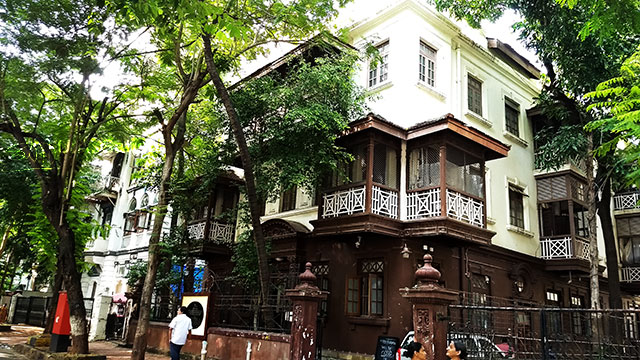
The Building
The century-old building is on Laburnum Road. The mansion belonged to Shri Revashankar Jagjeevan Jhaveri, Gandhi’s friend and host in Mumbai during this period. After Independence, it turned into a museum. The building is maintained in good condition. The washrooms are spotlessly clean. The museum s open daily from 9:30 am to 6:00 pm. Entry is free. Photography is not taboo.
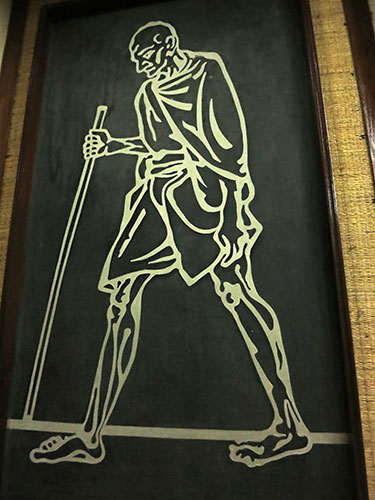
On March 3, 1959, Pandit Jawaharlal Nehru stated: “Mani Bhavan in Bombay will ever remain a precious memory to all those who visited it on many occasions when Gandhiji used to stay there. I am glad therefore, that this house is being converted into a Gandhi Memorial”.
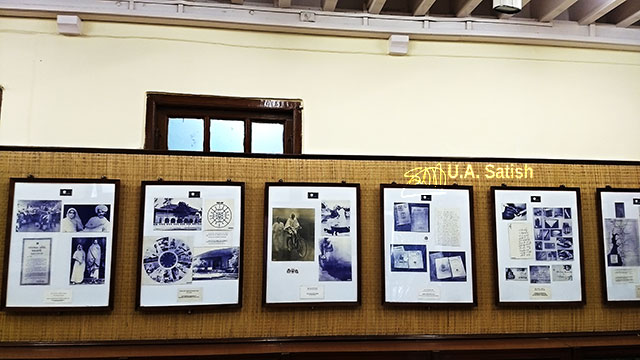
Ground Floor of Mani Bhavan
The ground floor houses the office of the museum. On the same floor is the library which has a substantial collection of about 40,000 books in reference and lending sections. Many scholars, students and, teachers use the library.
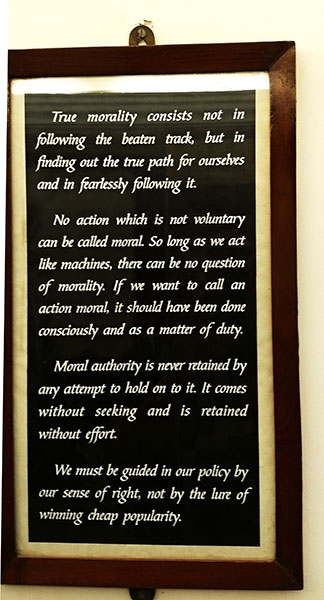
The room opposite to the library conserves old books. Old and smudged pages of books were pasted on sheets of cloth and hung to dry. Being a Sunday, the staff was not around to answer my questions.
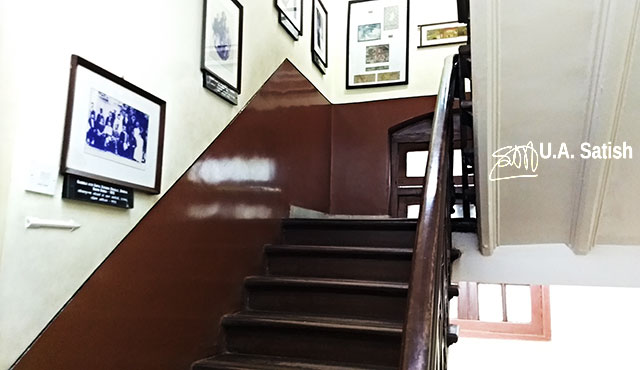
First Floor of Mani Bhavan
A narrow wooden staircase takes us to the first floor. Here you will find the auditorium which shows films on Gandhiji from time to time. Recordings of his speeches are played on request. The auditorium holds meetings, seminars and discussions.
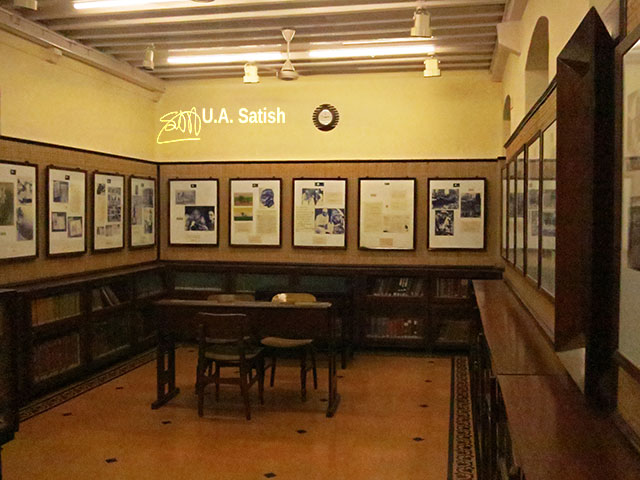
Second Floor
Gandhiji’s corner room is on the second floor. It is preserved in its original setting. Visitors are not allowed inside. But inside of the room is visible through the glass door. It is a spartan room with basic furniture which includes a bed, writing table and a couple of Chakras.
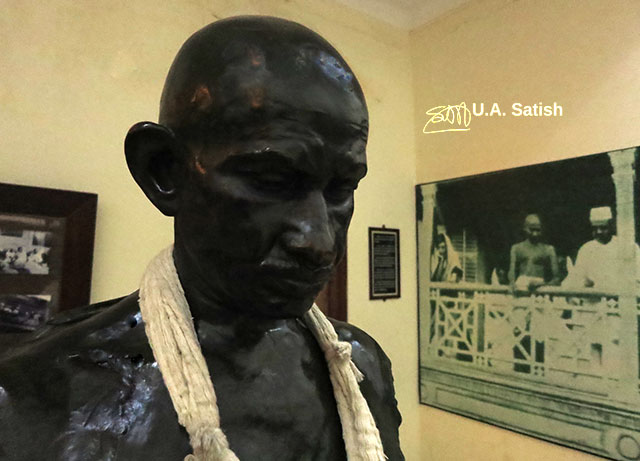
On the adjacent room is an exhibition depicting Gandhi’s life through miniature figures. Smt. Susheela Gokhale Patel prepared it for the museum.
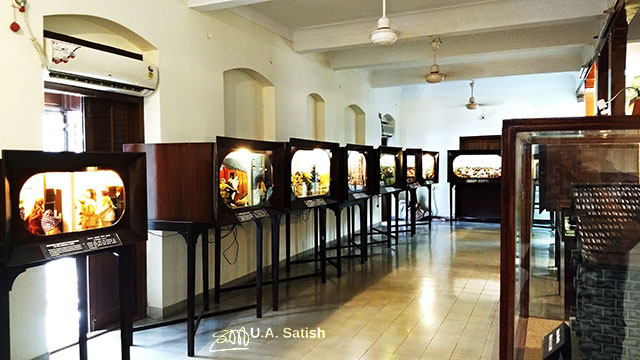
The rooms on both sides of the exhibition have picture galleries. It showcases photographs depicting important events in Gandhi’s life.
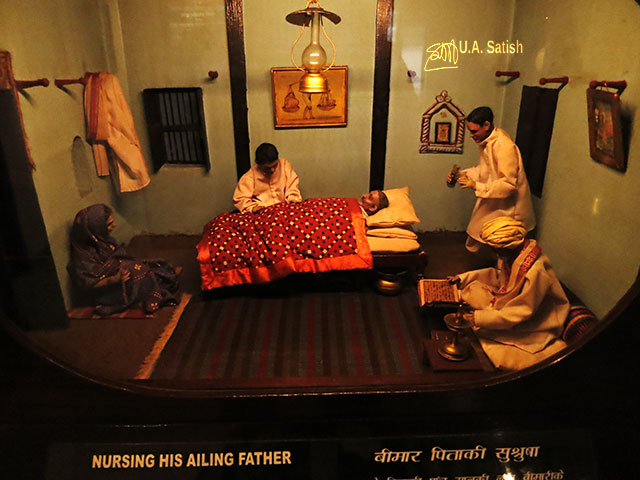
Gandhiji and Freedom Struggle
In 1932, the British arrested Gandhi from his tent on the terrace of the Bhavan and sent him to Yerawada prison in Pune. Mani Bhavan was the place which saw Gandhi’s journey from an individual taking on the might of the British to becoming a leader of national eminence.
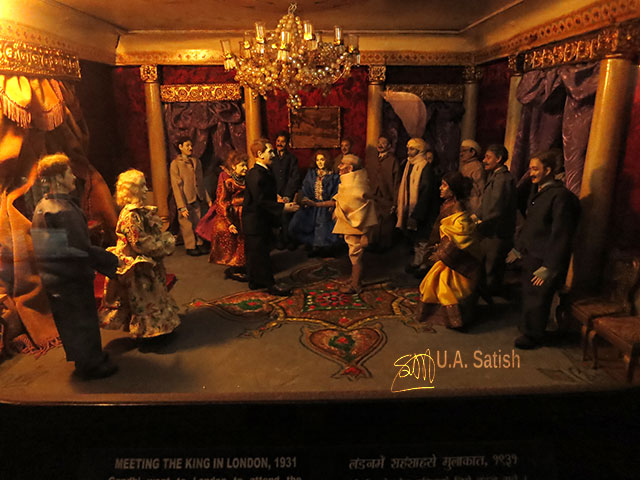
US President Barack Obama, accompanied by his wife Michelle, paid a visit to Mani Bhavan in November 2010. They spent 40 minutes going through the museum. Interestingly Martin Luther King visited the place in 1959.
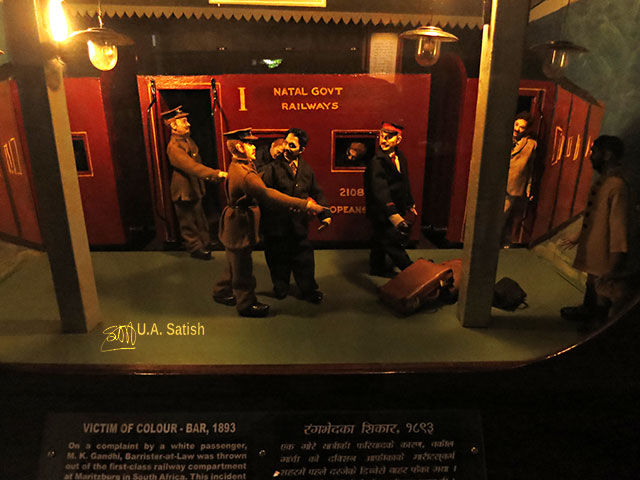
Gandhi spent 20 years in South Africa. On a train trip to Pretoria in 1893, persons of fair skin threw out Gandhi from a train in Pietermaritzburg although he had a valid first class ticket. At that time, people of dark skin could not travel in first class in South Africa. This became a decisive moment in Gandhi’s life as he decided to stay on and fight the persecution of Indians and others. It was during this struggle that he developed his distinctive resistance movement known as Satyagraha.
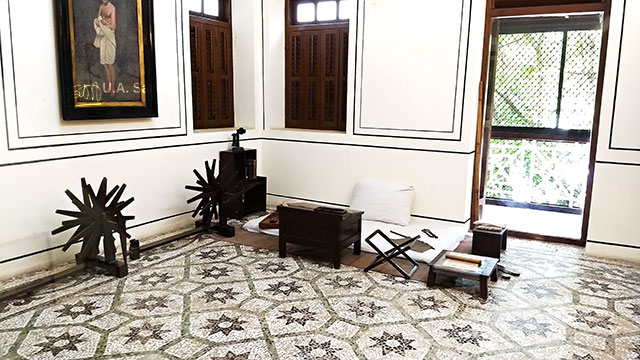
Getting There
Mani Bhavan is 1.7 km (7 min) from Grant Road Station via Tejpal Road. Chhatrapati Shivaji Maharaj International Airport Mumbai is 20.7 km (44 min) via Western Express Highway and Bandra Worli Sea Link.
If you liked the post, you could…
Join more than 5,000 fans of UASATISH by liking us on Facebook, or follow us on Twitter and Instagram.